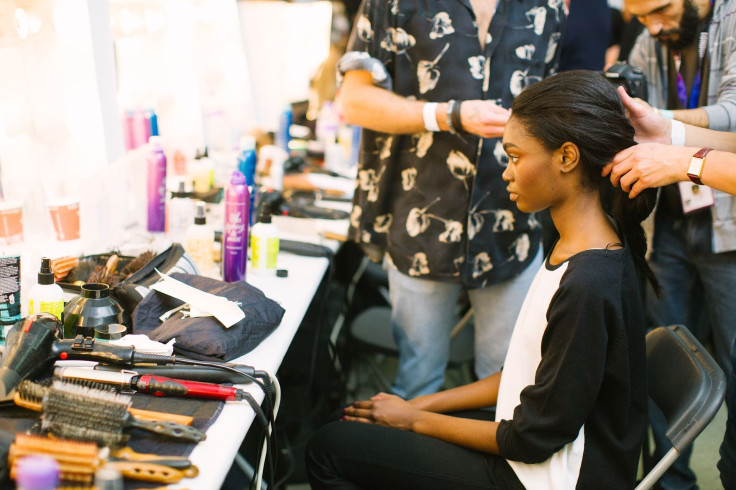European Ideal Of Beauty Causes Many Women To Use Toxic Beauty Products

Women often joke about the old adage, “beauty is pain,” when enduring too-tight shoes or stomach-slimming shapewear. But new research indicates that beauty is toxic—especially for women of color. According to the paper, “Compared with white women, women of color have higher levels of beauty product–related environmental chemicals in their bodies, independent of socioeconomic status.”
As they explain, non-white races are more likely to use beauty products like skin lighteners, hair straighteners and vaginal douches to conform to the European standards of beauty. However, these products contain chemicals with some dangerous health risks.
Allied Market Research estimates that by 2022, the global cosmetics product market will reach $429.8 billion. The authors of the study note that multicultural beauty products have now exceeded the overall cosmetics market in sales, with African American consumers purchasing nine times more ethnic beauty products than other groups, particularly hair relaxers and straighteners. Meanwhile, Asian Americans shell out 70 percent more on their skin care, compared to the national average.
Products targeting skin color, hair texture and vaginal odors are of particular concern. Women who use skin-lightening creams are at risk for mercury poisoning, and thus possible kidney and central nervous system damage. In the United States, the Food and Drug Administration allows trace amounts of mercury, totaling no more than 1 part per million of the substance, in products. Despite the restrictions, this hasn’t prevented high levels of mercury from making an appearance in over-the-counter products. The paper references a study of foreign-born Dominican women living in New York City who had high levels of mercury found in their urine. In 2014, Orange County health officials investigated a mercury poisoning linked to a lightening cream from Mexico. The unidentified product had more than 50,000 parts per million of mercury, far exceeding the FDA’s allowance. Officials believe the cream was made in the country and illegally sold in the states.
Studies have shown that African American women are also more likely to use products to hide vaginal odors, like douches and talc powder, the current paper notes. According to the American Cancer Society, talcum powder has been linked to ovarian cancer when used on the genitals, however some studies show there is little effect on risk.
While more African American women are embracing their natural curly hair, sales for relaxers declined to $131.8 million in 2014, according to CNBC, and could drop to $72 million by 2019. These products often contain placenta, a source of estrogen hormones as well as parabens. Both have been shown to increase one’s chances of getting cancer.
The paper authors call for an increase in policies that improve product testing, but that’s only part of the problem. According to the paper authors, racism is the larger issue as our society constantly idealizes white, European images as the standard of beauty. “Racial discrimination based on European beauty norms can lead to internalized racism, body shame, and skin tone dissatisfaction, factors that can influence product use to achieve straighter hair or lighter skin. Thus, beauty product use may be [one] way that structural discrimination becomes biologically embedded,” they write.
Published by Medicaldaily.com



























